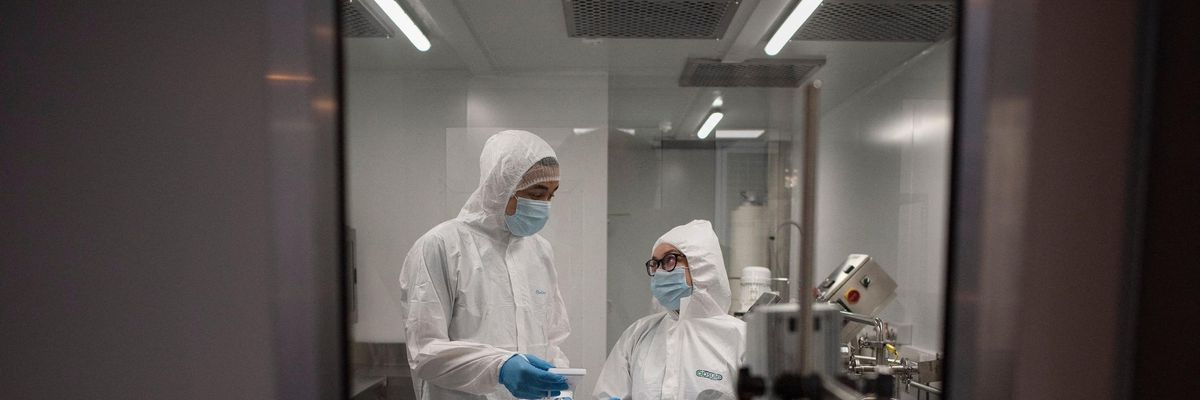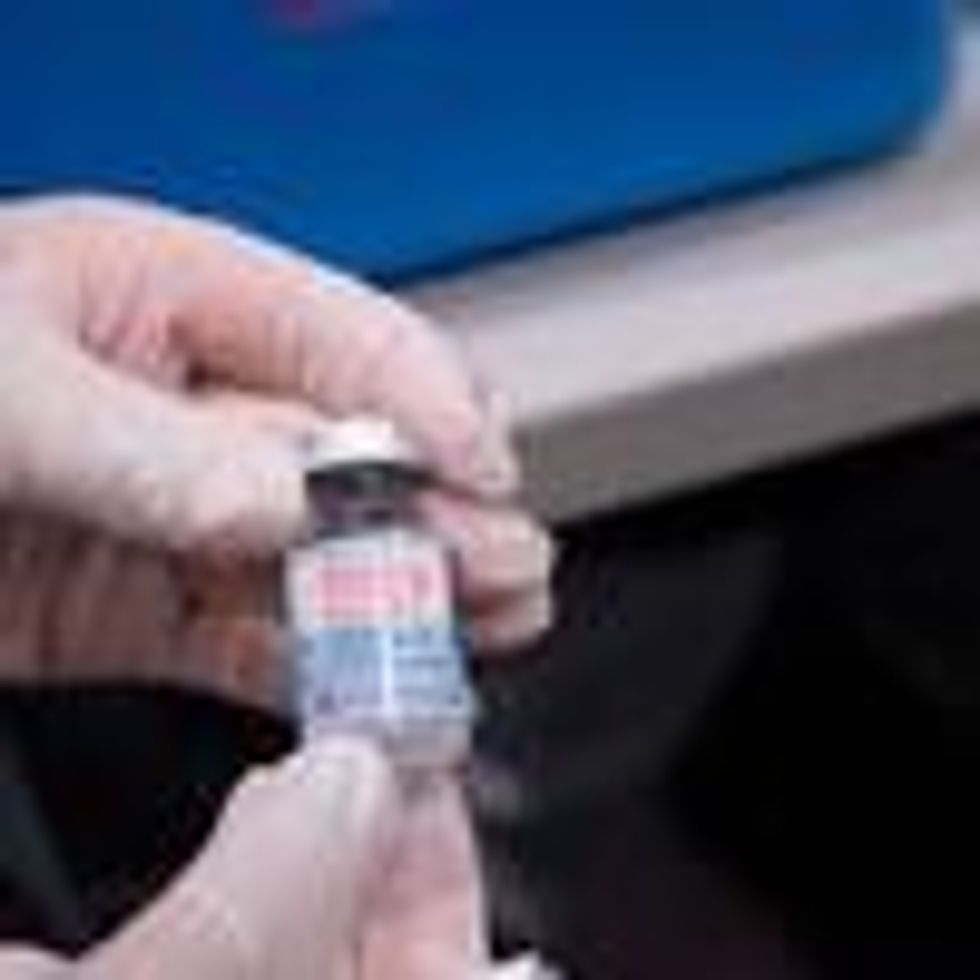South African scientists have created a close replica of Moderna's mRNA-based coronavirus vaccine without any assistance from the U.S. pharmaceutical giant, a development that could have massive implications for the fight against global vaccine apartheid.
"We were not intimidated, because mRNA synthesis is a fairly generic procedure."
In partnership with the World Health Organization (WHO), researchers at the South African company Afrigen Biologics used the sequence of Moderna's vaccine--which was reverse-engineered by Stanford University scientists and published online last year--to produce an mRNA shot of its own, an achievement that vaccine equity campaigners hailed as a "major breakthrough."
"We didn't have help from the major Covid vaccine producers, so we did it ourselves to show the world that it can be done, and be done here, on the African continent," Gerhardt Boukes, chief scientist at Afrigen, toldNature on Thursday.
To date, highly effective mRNA-based coronavirus vaccines have largely been hoarded by rich countries, forcing developing nations to rely on inadequate charity and leftovers. As a result, just 11% of the 1.3 billion people on the African continent have been fully vaccinated against Covid-19.
More broadly, just 10% of people in low-income countries across the globe have received at least one coronavirus vaccine dose, figures compiled by Our World in Data show.
In the face of such vast and dangerous inequities in vaccine distribution, Pfizer and Moderna--the producers of the two available mRNA shots--have refused to share their technology with low-income countries and declined to participate in the WHO's technology transfer hub, of which Afrigen is a key part.
Moderna, headquartered in Massachusetts, was also recently engaged in a heated patent fight with the U.S. government, which played a sizable role in the development of the company's shot--a huge profit-maker for Moderna.
Related Content
Moderna Reports 'Obscene' Profits From Covid Vaccine Funded by US Taxpayers
Jake Johnson
According to Nature, South African scientists' effort to produce an mRNA vaccine using Moderna's shot as a model began in late September, with a team at the University of the Witwaterstrand in Johannesburg taking "the lead on executing the first step: making a DNA molecule that would serve as a template to synthesize the mRNA needed in the vaccine."
"During this period, having heard about plans to mimic Moderna's shot, scientists from around the world sent Afrigen researchers e-mails offering assistance," Nature reported. "Some of them were researchers at the U.S. National Institutes of Health who had conducted foundational work on mRNA vaccines."
"This can be a game-changer."
While the executives of major vaccine makers--including Moderna--have claimed that transferring technology would not be productive because lower-income countries lack the capacity to manufacture mRNA shots, South African scientists said they weren't deterred by Big Pharma's self-serving narrative.
"We were not intimidated, because mRNA synthesis is a fairly generic procedure," said Patrick Arbuthnot, director of gene therapy research at the University of the Witwatersrand.
Charles Gore, executive director of the U.N.-backed Medicines Patent Pool, toldReuters Thursday that "if this project shows that Africa can take cutting edge technology and produce cutting-edge products, this will banish this idea that Africa can't do it and change the global mindset."
"This can be a game-changer," said Gore.
Much work remains to be done to usher the new mRNA shot through safety trials--which Afrigen expects to start later this year--and mass-produce the vaccine for distribution across the developing world.
Afrigen said it has agreed to train researchers in Argentina and Brazil on how to make the mRNA vaccine, and the company "expects to get more on board within the next month," Reuters reported.
There is also the future possibility of Moderna attempting to take legal action over Afrigen's use of the corporation's vaccine sequence.
While Moderna has vowed not to enforce coronavirus-related patents, that promise is only set to last for the duration of the pandemic. Moderna's billionaire CEO Stephane Bancel said in September--prior to the emergence and rapid spread of the Omicron variant--that he thinks the pandemic could officially be over by the tail-end of 2022.
Despite potential obstacles, public health experts around the world are enthusiastic about South African researchers' efforts to overcome barriers erected by rich governments and the powerful pharmaceutical industry.
"About time somebody gave a finger to Moderna!" tweeted Madhu Pai, Canada research chair in epidemiology and global health at McGill University in Montreal.


